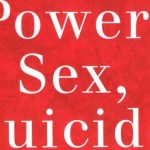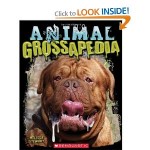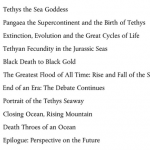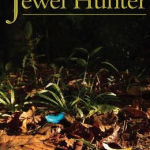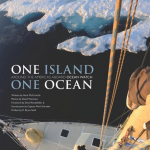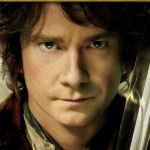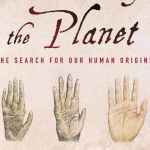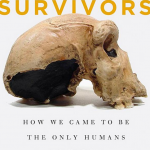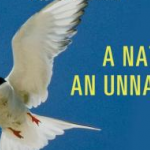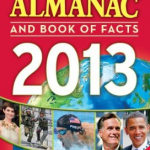Books
Here are my best reads in English during 2012. I read 50 books this year, six of which were e-books. I flirted with LibraryThing for a while, but lately I've found that Goodreads is more the kind of leisure reading database/community that I enjoy. Find me there.
Packing for Mars. Mary Roach 2011. Delving into space exploration history to get a perspective on the gritty realities of a future human-staffed Mars mission. (Let's first do sample return.)
My Early Life. Winston Churchill 1930. Scion of power spends his youth trying to get involved in war and trains as a cavalry officer as one of…
Mitochondria are cool, important, and fascinating. You know the basic story. Mitochondria are the result of endosymbiosis. A bacterim or bacteria-like organism insinuated itself into another bacterium or bacteria-like organism. The former was small, the latter large. A relationship started up whereby the smaller one became an organelle in the larger one, and Eukaryotic life was formed. You probably also know that in multi-celled organisms mitochondria may be passed on by one sex (female) so paleogenetic research can sort out female lineages by looking only at the DNA found in the…
I've got kids ranging from zero to 12 years of age to find gifts for this season. I've got most of them covered, and science books have figured in this effort in a bigger way than usual this year. I'm impressed with the number of climate change choices that have become available. Know a Republican with offspring? Ha. You know what to do...
But first some other sciencey books that are highly recommended or
award winning....
Animal Grossapedia ... from the publisher: "Think all animals are cute and cuddly? Read this book to discover just how disgusting they can really be!
Kids books about…
I remember finding out about the Tethys Sea and being really excited. I was just beginning my studies of Old World prehistory, Africa, and Human Evolution. What I learned about was the remnant sea separating Africa and Eurasia called Tethys, though it is much more than that (see below). Imagine a Eurasia with no Alps, no Caucasus, and no Arabian Peninsula. Much of southern Europe and huge swaths of North Africa are underwater, and Africa is so far away from Eurasia that all the classic seas of the region don't exist simply because they are part of the ocean. If you were in the western…
"The vastness of the heavens stretches my imagination. It does not do harm to the mystery to know a little about it. For far more marvelous is the truth than any artists of the past imagined it." -Richard Feynman
What did you think about, wonder about, and dream about the first time you saw the true magnificence of the night sky? Did you wonder about planets orbiting each of the thousands of points of light you saw? Did you think about the possibilities of rocky worlds with liquid water, of life, and even of intelligent aliens? Or did you perhaps think on even larger scales, about what stars…
On June 6th, 1944, some 160,000 soldiers aboard about 5,000 boats of diverse design crossed the English Channel and carried out the Invasion of Normandy, one of the more important events in recent history. Many of the soldiers were so sick from choppy seas that leaving the boats and walking or running into German gunfire seemed like a good idea. The invasion was originally planned for the 45h of June, but a very precise weather forecast told the Supreme Commander, General Eisenhower, to wait until the next day. The forecast for the 6th of June, integrated with the logistical features of the…
The Jewel Hunter by Chris Goodie is the story, generally chronological, of one man's quest to observe, in nature, every known species of a rare and typically elusive bird: the Pittas. Oh, and all in one year. For a birder, this is the rough equivalent of buying some impossible to pay for sports car as a symptom of midlife crisis. It required being bitten by leeches and scared by snakes.
The Pittidae is a family of songbirds distributed in the Old World, mainly in Asia and Australia, but with a few species in Africa.
They tend to live in rain forests or at least, denser woodlands and…
When I was in 5th grade one of my classmates announced that she and her family (they were a family of singing folksingers) planned to take a trip in a boat they had built around the continent. In that class were were all required to give talks on various topics of our choosing, and she gave a talk on that. We were all impressed by many aspects of the planned adventure, but one thing stood out: During this trip the folk singing family would pass dangerously close to Haiti, which was on very bad terms with the US at that time (I believe it was a Soviet Satellite or something along those…
Tired of merely watching birds? Ever consider trying to draw them? There's a method to do so. John Muir Laws is very good at this and he's written a book that can help you get started, maybe even become good at it yourself:Laws Guide to Drawing Birds .
In case you were wondering, Laws' name does not connect him genealogically to the famous John Muir; his parents named him that. But apparently, there is a connection between names and what people do, and John Muir Laws is in fact a naturalist.
This book covers all the usual methodology of illustration but with birds. There are a gazillion "…
The Hobbit, the movie, opens tomorrow in a theater near you. This is based on J.R.R. Tolkien's book, The Hobbit, or There and Back Again, which chronicles the adventure of Bilbo Baggins. To many, this constitutes a prequel to the Lord of the Rings trilogy, which many read (or saw in movie form) before finding out about The Hobbit; this prequel-esque aspect of The Hobbit is reified in the production of the movie following the distribution of the Lord of the Rings movie. Notably, however, The Hobbit was written first, and The Lord of the Rings is a proper sequel. (Interestingly, the Hobbit was…
I'll tell you two things up front: this book is my friend's first published novel; and I would have read it with great enjoyment even if I had no idea who the guy was. Paddy Kelly classifies it astutely as “Dick lit / Romantic comedy”: it's Bridget Jones or Sex and the City, only from a male perspective. The plot revolves around the love lives of two young Irishmen in 00s Stockholm: one a neurotic recent divorcé and part-time single dad, the other a carefree ladies man. They've both ended up in Sweden for love, as “erotic refugees”. And here's a freebie for future literature scholars trying…
This is a summary of several of the better books I’ve had the opportunity to review here, organized in general categories. This is written from a North American perspective since most of my readers are North American (though many of you live to the west of the “Eastern Region” … but you probably know that). So, when not specified, a book with a regional focus is likely to be for that area, and the “Outside the US” section is labeled thusly.
Everybody needs a basic field guide. If you need more than one field guide because you are a family of birders, or because you like to keep one in the…
Yesterday I wrote about Chris Stringer's modified version of human evolution. Today, let's have a look at Ian Tattersall's new book, Masters of the Planet: The Search for Our Human Origins (Macsci). Tatersall's boo, like Sringer's, is a good overview of the newer evidence in the constantly changing field, but he goes back earlier and provides a much broader context for human evolution. His main thesis is that the features that made modern humans unique have two main characteristics: 1) they were sufficient and causal in the process of making that one species "master of the planet" and 2)…
Chris Stringer's new book, Lone Survivors: How We Came to Be the Only Humans on Earth, attempts to reconcile the age-old conflict between the "Multiregional" and "Out of Africa" hypotheses of Modern Human origins. Stringer has long been identified with the "Out of Africa" hypothesis, and his criticism of the Multiregional model pretty much still hold. In the Multiregional model, different groups of a human ancestor, i.e., Homo erectus (and friends) existed over a large region of the earth (Africa and Eurasia) and different populations of that ancestral populations evolved in parallel to…
Carl Safina is in some ways a modern Rachel Carson, an ecologist who writes excellent stuff about ecology. The View from Lazy Point: A Natural Year in an Unnatural World is his latest work. I saw him recently at the Gustavus Nobel conference where he gave this talk (the actual talk starts at about 9:00, following an epic-length introduction which I'm sure is very nice but you may want to skip):
He's a great writer and a great speaker. The book is about nature, ecology, the world, etc. under current conditions of environmental threat including climate change. In the area of natural history…
I liked Chickens: Their Natural and Unnatural Histories by Janet Lembke even if it is annoyingly unscholarly in places where it should be (assertions of fact are frequently made with zero or poor referencing). As far as I can tell, the writing is accurate in its coverage of all things Chicken. Chickens in science, chickens in stories, chickens in the back yard, chickens in history, chickens in evolution, chickens in art, chickens in mythology, chickens in medicine, chickens in Medieval times, chickens in Renaissance times, chickens all the way down.
If you are a chicken person you should…
The LEGO Adventure Book, Vol. 1: Cars, Castles, Dinosaurs & More! by Megan Rothrock is primarily for people who have been messing around with LEG for, say, less than 10 years or so, especially those who are new at it and seek both inspiration and guidance in such daunting tasks as making a scale two engine turboprop airplane or an entire Lego town.
The book guides the reader step by step through 25 exemplar models, each of which is fairly elaborate, and demonstrated with more basic information close to 200 other models to illustrate variation. Despite the name of the book and a fairly…
A while back I raised the question: Is there still room on the shelf for an almanac? in reference to the World Almanac for Kids. I thought it might be cool for some kids of the right age, if nothing else to demonstrate them (however untrue it may be) that there are still some things you can learn from that are not on line. Now, I've got a copy of The World Almanac and Book of Facts 2013. This is the adult version.
At first I was a little disappointed that the front cover of the 2013 Almanac has a picture of Mitt Romney (he's so 2012) and the Olympics (they happened a year or two ago,…
I'm reading Disaster!: A History of Earthquakes, Floods, Plagues, and Other Catastrophes by John Withington, who also wrote about other disastrous things such as disasters specific to London. It is a couple of years old (and thus does not include the recent Japan earthquake and tsunami). This is more of a reference book than a sit-down-and-read-it book, and it lacks detailed presentation or critical analysis of sources, but if you want to know about a particular past major disaster or category of major disasters (volcanoes, floods, tsunamis, etc.) this is a good starting point. Reading…
That is the title of a book by Lars-Åke Janzon, with the subtitle "175 Answers to Possible and Impossible Questions about Animals". Oddly, that particular question appears to be evaded in the book itself, but most of the 175 questions seem to be addressed accurately. This is one of those books you keep around and read bits from now and then...perhaps you bring it on a trip and the tweens use it to create a game show or perhaps you keep it in your Life Science classroom and use it to generate discussion or test questions, or perhaps you just thumb through a fifth of it or so before going to…
